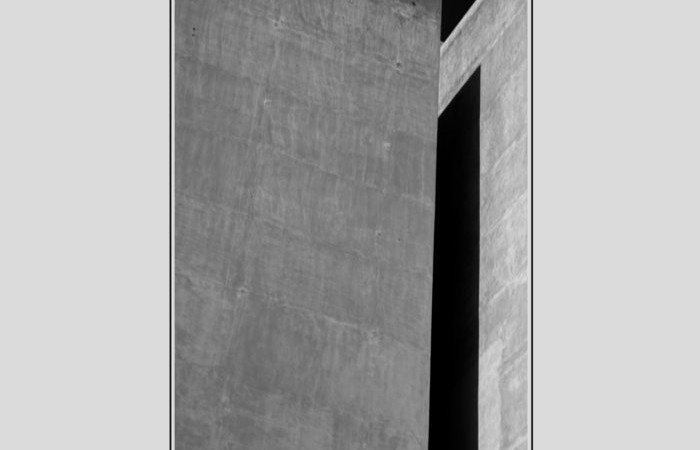The Athens-based black metal group Moeror sound elegantly devastating on their hard-hitting new album, The Ghosts of Amour Propre.
The group’s rhythms feel emotionally powerful and subtly majestic, and Moeror frequently perform with stormy ferocity, amplifying the experience of their music’s emotional tumult even further. The album feels, fundamentally, like rushing headfirst into sheets of metaphorical rain from an emotional storm, with lightning cracking when the band dial up their physical intensity and a steady roll of existentially menacing musical thunder throughout the experience.
There’s a sternly persistent forward drive in the progressions across The Ghosts of Amour Propre, as if reflecting the arrival of a prophetically-ordained slip into an ethereal void. The album feels definitively staggeringly heavy, and Moeror reflect this heaviness in the emotional realm, with smooth transitions from the regally proceeding rhythms of “Others” to the fiery, blistering opening of “Time’s Diadem” and beyond. The music feels startlingly formidable, but The Ghosts of Amour Propre definitely does not seem overwhelming. The rich textures seem to carry a whole alternate world, as if peeking behind a curtain to a parallel dimension in which personal and collective memories seem to come alive, with ghoulish, menacing contortions matching shifting collective emotional states. “Urban Nihilism,” which opens the record, features strangely danceable rhythms within its first few minutes, adding to the expansive journey.
The steady blanket of lung-filling heavy atmosphere that runs throughout the record makes the album feel richly immersive. In the slower, subtly dramatic portions like the opening half of “Janus-faced Messiah,” Moeror seem to musically capture a feeling of grimy decadence, as if exploring ruins of some palatial escape in which half-rotted curtains still lay across dirt-covered, ornate floors. These feelings of grandiose self-contemplation also feel quite accessible on a more personal emotional level thanks to the real strength of the frequently pensive melodies. The somberly surging, slower tempoed conclusion of “Janus-faced Messiah” feels easily applied to some scene of sitting amidst ruins, emotional or otherwise, and slowly taking in the surrounding malaise.
“Youth In Naphtha,” the record’s penultimate track, places icy synths on clear display amidst the expansive and somberly meandering instrumentation. The record concludes with a chilling procession of grimly regal riffs on the somberly majestic closer “Cluster of Trillion Egos.” The record feels deeply emotionally compelling.
5/5 Stars
Listen to The Ghosts of Amour Propre below!
You may also like
-
Diana Kurz at Lincoln Glenn in New York: A Review of a Shining Art Exhibition
-
Dustin Hodges at 15 Orient in New York City: An Ensnaring Exhibition at an Exciting Gallery
-
Maren Hassinger at Susan Inglett Gallery in New York: Reviewing an Uplifting Art Exhibition
-
Enzo Shalom at Bortolami in New York City: Reviewing an Entrancing Exhibition of Paintings
-
“Ben Werther: Townworld” at Amanita in New York City: Reviewing a Richly Memorable Art Exhibition
